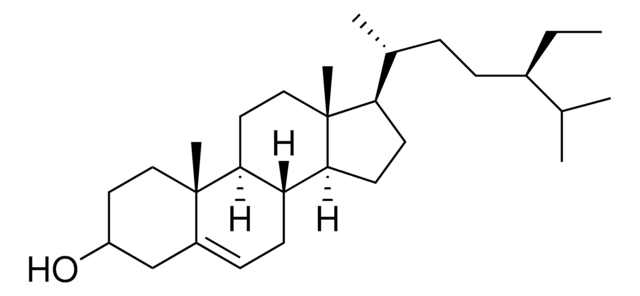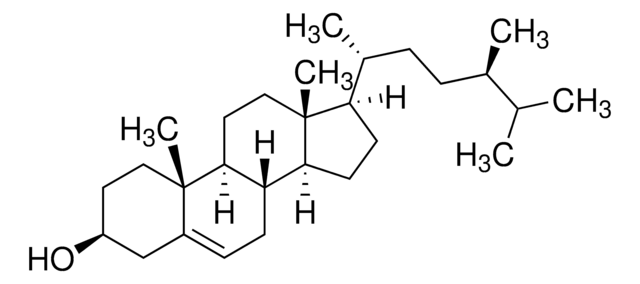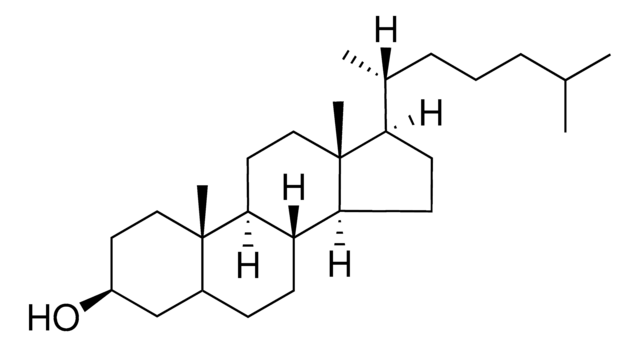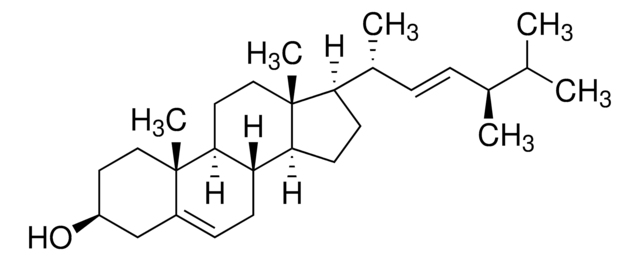700095P
Avanti
sitosterol
Avanti Research™ - A Croda Brand
Synonym(s):
stigmast-5-en-3β-ol; β-sitosterin
About This Item
Recommended Products
description
22,23-dihydrostigmasterol
Assay
>99% (contains ~2% of the 24 alpha isomer, TLC)
form
powder
packaging
pkg of 1 × 25 mg (700095P-25mg)
pkg of 1 × 5 mg (700095P-5mg)
manufacturer/tradename
Avanti Research™ - A Croda Brand
shipped in
dry ice
storage temp.
−20°C
InChI
1S/C29H50O/c1-7-21(19(2)3)9-8-20(4)25-12-13-26-24-11-10-22-18-23(30)14-16-28(22,5)27(24)15-17-29(25,26)6/h10,19-21,23-27,30H,7-9,11-18H2,1-6H3/t20-,21-,23+,24+,25-,26+,27+,28+,29-/m1/s1
InChI key
KZJWDPNRJALLNS-VJSFXXLFSA-N
General description
Application
Biochem/physiol Actions
Packaging
Legal Information
also commonly purchased with this product
Storage Class Code
11 - Combustible Solids
WGK
WGK 3
Flash Point(F)
Not applicable
Flash Point(C)
Not applicable
Certificates of Analysis (COA)
Search for Certificates of Analysis (COA) by entering the products Lot/Batch Number. Lot and Batch Numbers can be found on a product’s label following the words ‘Lot’ or ‘Batch’.
Already Own This Product?
Find documentation for the products that you have recently purchased in the Document Library.
Customers Also Viewed
Our team of scientists has experience in all areas of research including Life Science, Material Science, Chemical Synthesis, Chromatography, Analytical and many others.
Contact Technical Service







